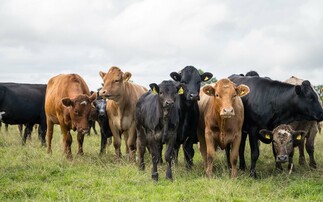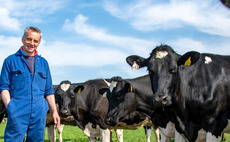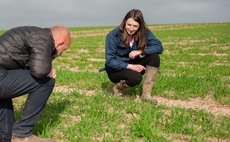
"Labour repeatedly ruled out scrapping APR prior to the election – knowing that to do so would jeopardise the future of family farms up and down the country."
Farming organisations have warned the abolition of Agricultural Property Relief (APR) in the Government's next budget in October could cause 'significant harm' to both landowners and tenant farmers.
Since Labour's General Election win, there has been murmurings in the industry around whether the Party could end APR, which currently offers significant inheritance tax relief for family farms.
Property consultancy Berrys said if it was abolished, inheritance tax liabilities could 'increase substantially', with a farm valued at £2 million potentially facing an estimated tax bill of £600,000.
READ NOW: Inheritance tax could 'devastate' future of family farms
Chancellor Rachel Reeves has not yet specified whether there will be any changes to APR, but she has indicated that taxes are likely to rise to address the 'hole' in public finances.
During the General Election campaign, the then Defra Secretary Steve Barclay had warned Labour were planning to scrap inheritance tax relief for farmland.
The Treasury at the time said they kept all taxes under review and did not comment on future tax policy.
But in December 2023, the then Shadow Defra Secretary Steve Reed told the NFU the Labour Party had no plans to change inheritance tax.
CLA president Victoria Vyvyan said ending APR could place food security at risk.
"Labour repeatedly ruled out scrapping APR prior to the election – knowing that to do so would jeopardise the future of family farms up and down the country.
"We need to ensure the Treasury understands the simple reality – scrapping APR would force many farmers to sell land and split up their family businesses to pay inheritance taxes, putting livelihoods at risk.
"This would put food security at risk."
Ms Vyvyan said APR was 'not a loophole' but a 'necessary' tax relief for farmers.
Tenant farmer Rob Halliday from Cornwall said the loss of APR has the potential to do a ‘huge amount of harm' to the family farming sector.
Mr Halliday also added in an industry which is 'generally asset rich and cash poor', capital taxation on this scale could be 'draconian' and 'unaffordable' to farmers.
"There is also significant risk to the tenanted sector," he added.
"While it looks politically appealing to tax the landed, it could result in a reduction in tenancy and contract/share farming opportunities."
Tenant Íæż½ã½ã Association chief executive George Dunn said he had already seen concerns about inheritance tax changes in the way traditional estates in Cumbria thought about the management of their agricultural land.
Mr Dunn said the move could be detrimental for the tenanted farming sector with landlords potentially wanting to recover possession of let land to farm to qualify for other tax relief incentives including Business Property Relief.
Rather than abolishing it for let land, TFA said it should be available to landlords who are prepared to let for the longest terms, while at the same time providing landlords with the opportunity to deem the rental income received in respect of letting land as trading income to assist with access to BPR across their wider estate interests.
"In our view, this would deliver more sustainable agricultural tenancies and begin to reverse the trend of insecurity," Mr Dunn added.
However, Ms Vyvyan said limiting APR to tenancies over a certain period would be 'counter-productive'.
"It would act as a disincentive to let land, and undermine the flexibility of the FBT system for both landlords and tenants."
A Government spokesperson said: "We plan to deliver a new deal for farmers that works for farmers and nature – to boost rural economic growth and strengthen Britain's food security including by backing produce, protecting farms from floods and tackling rising energy costs."
READ NOW: Jeremy Clarkson says inheritance tax could see farmland 'disappear' within 20 years


























